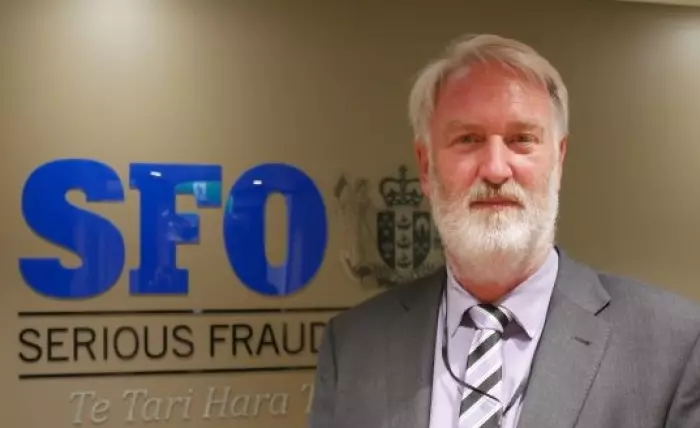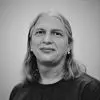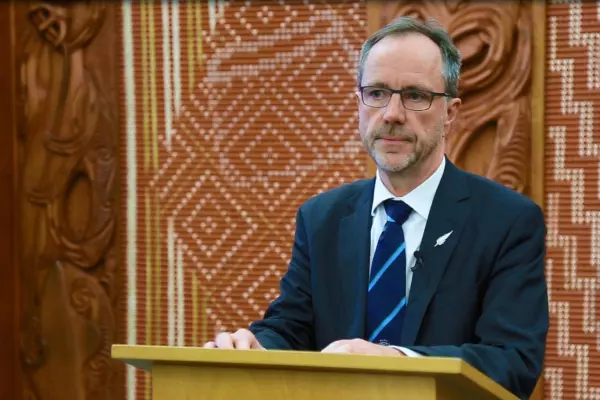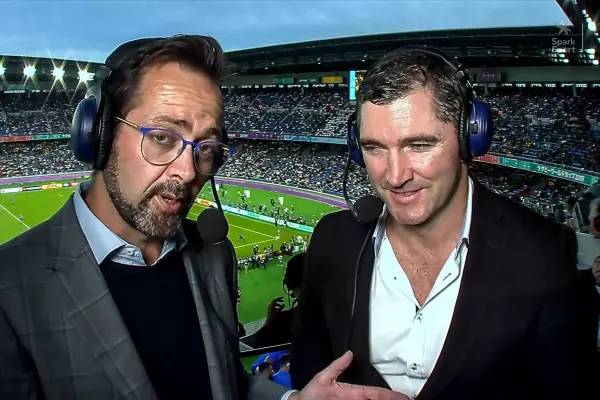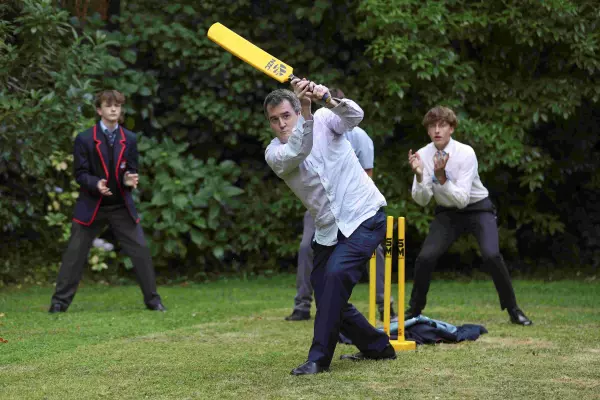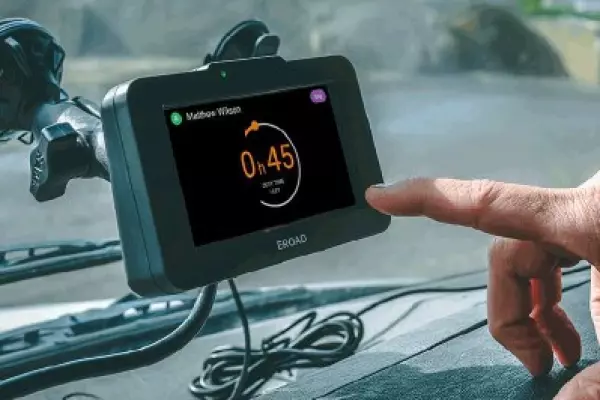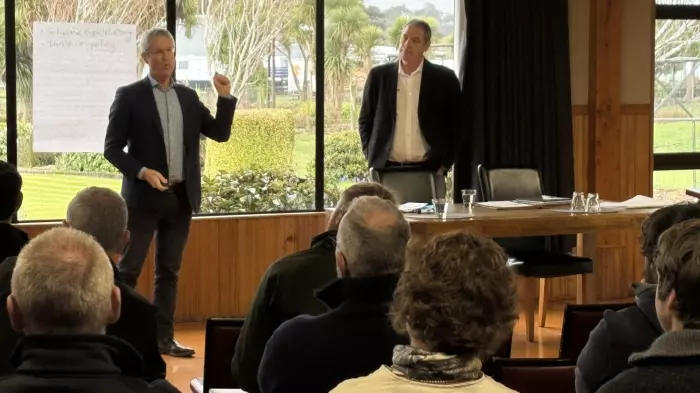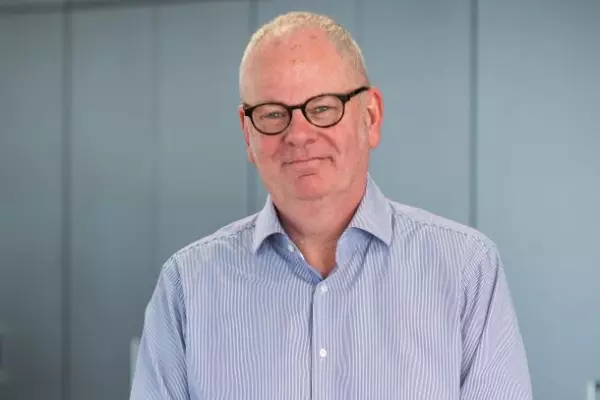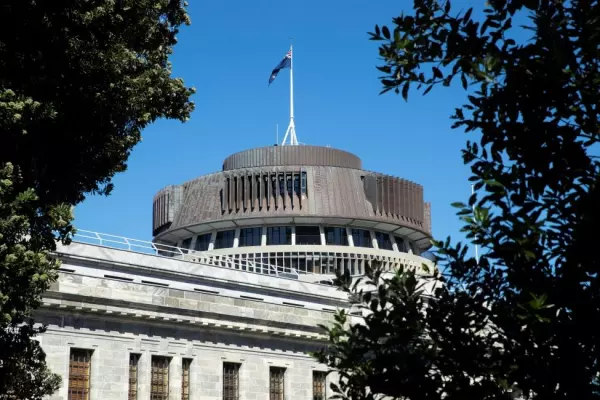In 2020/21 the Serious Fraud Office (SFO) commenced 11 full-scale investigations while bringing 45 defendants and a total of $292 million in alleged fraud before the courts – all of that with 67 staff and a $12m budget. Jem Traylen talks to Clive Hudson, one of their most experienced investigators.
When the SFO interviews a suspect, things may not get quite as dramatic as what’s depicted on the average TV crime drama, but investigator Clive Hudson has been in one or two that came close.
There's the time a suspect assured him and his fellow investigators that a particular person never saw a document that is critical to the case.
They asked the suspect if he was sure: “You didn’t give it to them for editing or anything?”
Another firm “no” was the reply, as the suspect remained confident in the knowledge that bins of crucial documents had been sent for destruction months earlier.
However, the SFO team projected an image of the document in question onto a screen revealing the handwritten edits of the person being discussed.
Hudson recounts that the room went silent. The suspect turned a shade of grey as he is confronted with the reality that, thanks to a tipoff, the team had intercepted the shredding bins with the evidence intact.
In another such interview, a suspect was adamant that a receipt book was the genuine article, along with all the transactions recorded in it.
Not easily fooled, the investigators responded with compelling evidence that the book had been bought at PaperPlus the week before.
That resulted in the suspect walking out, but it didn’t save him from being convicted of perverting the course of justice.
Sometimes it’s Hudson’s turn to be surprised, such as the time he had a detailed plan of the questions he was going to ask, carefully scripted and sequenced, but the suspect simply confessed at the outset.
Millions of documents
Interviewing suspects usually comes in the final stages of an investigation, which typically lasts upwards of two years and involves the gathering and making sense of a million or more documents.
In the last financial year, the SFO received 975 complaints, but their focus is on the much smaller number of cases with a disproportionately high impact on the financial and economic wellbeing of New Zealanders.
In the first instance, an evaluation team assesses each complaint. Many are referred to other agencies for action – eg tax evasion, illegal immigration, identity fraud or small-scale stuff like dating or foreign lottery scams.
In 2020/21, 29 complaints proceeded to a “part one” enquiry, which assesses whether the allegation should proceed further.
Of these, 11 full investigations were initiated. These usually begin by using statutory powers to gather information from banks, telecommunications providers and accounting firms.
It often also involves obtaining search warrants to seize evidence from businesses and homes.
Hudson is old enough to remember hauling away filing cabinets full of paper documents, but these days it’s mainly computers and phones that are taken.
He is silver-haired now, but he was once that bright-eyed youngster so handy with computers that he was sent on the agency’s very first training program in electronic forensics.
They were taught by their American counterparts, but Hudson says he’s visited other jurisdictions and NZ no longer suffers in comparison.
“We’re right up there in terms of the technology we’re using. In fact, in some cases, NZ is cited as being innovative.”
The largest investigations can cover 3m electronic documents or more – which, if printed, would fill well over 1000 filing cabinets.
Fortunately, the SFO has invested heavily in the artificial intelligence needed to sift through mountains of documents.
“If you've coded something that has been relevant, then the system will go out and look for other documents that have got some similar threads or some similar portions to it and push that into the review as being the next thing to look at.”
Remember the late '80s?
Hudson has been a public servant for over 30 years, starting out on a bursary at the Inland Revenue Department (IRD) studying accounting at Waikato in the late 1980s.
He confesses that a careers-day visit to an accounting firm put him off pursuing the subject that he had excelled at in school.
Searching for a different avenue to apply those skills, he set his sights on becoming an investigator for the tax department.
He says he has always enjoyed solving mysteries. As a youngster, he loved reading such classic series as the Hardy Boys’ adventures or Alfred Hitchcock and the Three Investigators.
He also nurtured his enquiring mind by including arts subjects in his degree, such as philosophy and French.
Meanwhile, as he pursued his tertiary study, a complex fraud was being engineered that would hasten the sharemarket crash that spurred the creation of the specialist agency he would later join.
He first encountered the SFO in the early 90s when investigating a tax case while he was at IRD: “It was a huge tax fraud [with] false documents and all sorts of money-go-rounds”.
Because of its scale and complexity, the case was referred to the SFO and Hudson got the chance to work alongside that agency.
Team approach
He was impressed by their multidisciplinary team approach, which is considered international best practice for investigating complex financial crimes.
Every SFO case has at least one forensic accountant, one investigator, one lawyer and, since the early 2000s, one electronic forensics person, with each viewing the evidence through a different lens.
“Between us all, what we’re trying to do is put together a jigsaw puzzle, trying to create the picture of what's actually happened to determine 'is this actually fraud?'”
The heart of each investigation is unravelling the money trail. “People are pretty clever. One person had a series of companies that he was channelling money through, but if you looked on the company's office register, he was nothing to do with those companies.”
Other people were listed as the directors and an accounting firm as the shareholder.
A deep dive into everyone’s history revealed the suspect was a high school friend of the directors and the beneficiary of a trust set up by the accounting firm: “We followed the money and that’s where it went to”.
A straight arrow
Two years after the joint tax fraud investigation he worked on in the '90s, Hudson joined the SFO and has been there ever since, eschewing the opportunity to earn more as a forensic accountant in the private sector.
“For me, personally, I like helping people. I do that at work, but I also do that in my private life as well.”
His role prevents him from undertaking any secondary employment, but that hasn’t stopped him from signing up as a volunteer.
He’s spent about 15 years on school boards of trustees and more recently has become involved in the world of competitive archery.
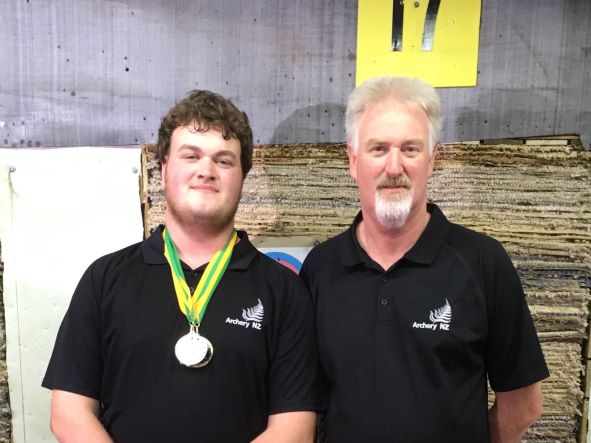 Hudson enjoys helping out at his son's archery tournaments (Image: supplied)
Hudson enjoys helping out at his son's archery tournaments (Image: supplied)When BusinessDesk spoke to him, he had just returned from a weekend as “director of shooting” for a tournament in Palmerston North, explaining that it was because of his son, a national champion, that he signed on as a judge and administrator.
“He didn’t like me sitting behind him and watching him, so I needed to find something else to do at archery tournaments.”
A lid on corruption
NZ may consistently top the Transparency International rankings, but Hudson prefers couching this achievement in terms of being one of the least corrupt countries in the world since his agency wouldn’t exist if there wasn’t corruption still happening here.
Our national hall of shame includes former auditor general Jeff Chapman who was jailed in 1997 for making fraudulent expense claims.
Among the largest corruption cases in our history, there's a case that involved a businessman spending more than $1m bribing public officials at Auckland Transport (AT) into awarding contracts worth tens of millions to his company.
Hudson was on the case from the outset through to giving evidence in court, playing both a forensic accounting and electronic forensics role.
The team seized current phones and computers under warrant and, as the fraud spanned seven years, they grabbed older devices as well.
“Some of the key communications were on those old devices that they hadn't touched for three or four years, sitting there gathering dust – but we captured the data.”
They also seized lots of paper, including invoices and bank statements which were all scanned through optical character recognition, allowing keyword searches and sorting by date.
“We're talking millions of electronic files, and probably 50,000 bits of paper on the case.”
They fed everything into their electronic toolkit and began hunting for email threads and subject lines that would tie payments to communications being made around the same time.
As always, Hudson’s job was to piece together the money trail. “How did Projenz treat the payments that they've made? What payments did each person get and when, and then what communications and other evidence was there around those?”
The businessman, Stephen Borlase, was sentenced to five and a half years in prison, with the AT manager, Murray Noone, sentenced to five years in prison. Millions of dollars of assets were seized as proceeds of the crime.
Hudson says the SFO’s role is to shine a light on financial crimes. Then it is up to the courts to decide whether they agree with the SFO's findings. Their conviction rate is very high, though, even reaching 100% in the last financial year.
An ounce of prevention
A recent development that Hudson is excited about is the agency now being specifically funded to work on prevention.
A team has been set up to turn lessons learned by veteran investigators like himself into case studies to be proactively disseminated. It's a far cry from the previous approach, which he describes as one of “gradual osmosis”.
“We haven't seen historically that [knowledge and experience] circle back, because we keep seeing the same cases happen."
Even if organisations do all they can to tighten up their procedures, Hudson doesn’t think there will be a need for him to retire anytime soon.
“Ultimately, the people we deal with are pretty clever and they will try and find their way through various processes and procedures.
“But the more that you can put in place upfront, then hopefully the less of an issue there is further down the track.”


